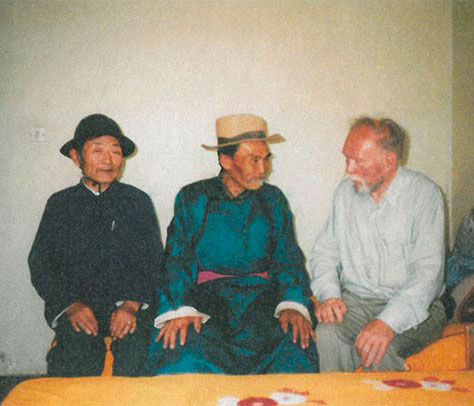About the Project
The project “Oral Tales of Mongolian Bards” is devoted to the internet publication of eighteen oral tales performed by bards of eastern Inner Mongolia, including four epic poems and fourteen tales based on Chinese adventure novels, known as quγur-un üliger “tales of the fiddle”, viz. tales accompanied by the music of the four-stringed fiddle (quγur, huur). The tales form a portion of a large collection of tales, oral histories of bards, and ritual songs of Qorčin (Horchin) Mongol shamans. The collection is currently preserved at the North Rhine-Westphalian Academy of Sciences, Humanities and the Arts in Düsseldorf. Eleven of the tales are provided with long English summaries, five of them with commentaries, while seven tales are made available with short summaries.
As to how the tales became a collection, in 1984, 1986, 1991, and 1995, the late Professor Walther Heissig, the distinguished Mongolist of Bonn University, recorded part of the tales on tape from the oral performance of bards (quγurči, the fiddle player) in different regions of eastern Inner Mongolia. Other tales were recorded by Professor Rinčindorǰi of Baγarin (Baarin), one of the leading scholars of the Mongolian epic at the Chinese Academy of Social Sciences in Beijing, and Mr. Nima of J̌arud, a specialist in Mongolian folklore living in Beijing. During their frequent stays in Bonn, from 1992 to 1997, Professor Rinčindorǰi and Mr. Nima carried out the demanding task of transcribing in classical Uighur-Mongolian script the great majority of the tales in 90 large-sized notebooks. In 2010, Professor Rinčindorǰi also transcribed the two tales Modon qota / Muyang čeng-ün üliger (Mongolian: “The Story of the City of Wood“ / Chinese: “The Story of the City where Sheep are Herded“) and “The Story of the Tang Monk” (Tangsuγ /Tangseng lama-yin üliger). In 2011, Professor Čoγtu, a scholar of Mongolian oral literature at the Central University for Nationalities in Beijing, provided a new transcription of Ku si ǰuwan-u nigen bölög “A Chapter in the Story of Pain and Joy”, since the earlier transcription available to us was not entirely satisfactory. Some of the texts of the collection still need to be transcribed. After Professor Walther Heissig died in 2005, in accordance with his wishes, the entire collection of tapes and transcriptions was donated to the North Rhine-Westphalian Academy of Sciences and Humanities in Düsseldorf in 2006.
The texts of the collection are not completely unknown to scholars in the field. Two different sections of the tale “The Story of the Western Liang State” (Baraγun Liyang ulus-un üliger), performed by the bards Qoosbayar and Dorǰi, respectively, were analysed in detail by Walther Heissig in a pioneering work. The Mongolist Dr. Elisabetta Chiodo translated into English the interviews with seven bards conducted by Professor Rinčindorǰi , and she also provided an English translation with commentaries of ritual songs of Qorčin shamans devoted to Jayagachi, the protector of livestock and property . She also compiled the catalogue of the texts of the entire collection. More recently, Elisabetta Chiodo translated into English the tale “The Holy Geser” (Geser Boγda), which has not yet been published.
The task of investigating and publishing the eighteen tales which form part of the present project was assigned to Elisabetta Chiodo, who also has the knowledge of Chinese language and literature needed to deal with the peculiarities of the Mongolian “tales of the fiddle” based on Chinese narrative traditions. The contents of the “tales of the fiddle” are intricate, full of twists in the plot, populated by a vast array of characters and warriors engaged in endless duels. The English summaries of the contents of the tales which Elisabetta Chiodo provided are sufficiently detailed for the reader to follow the sequence of events as the stories unfold. She has written an introduction (“Introducing the tales”) which places the tales in the historical and cultural context in which they originated and flourished. She has also carried out a preliminary analysis of the sources and themes of four “tales of the fiddle” and the epic tale “The Holy Geser” (see “Narrative content of the tales”). In view of the fact that the Mongol bards who perform the “tales of the fiddle” sing the passages in verse on varying theme-melodies, Elisabetta Chiodo thought important to draw the listeners’ attention to this distinctive feature of the performance. Consequently, she has provided a list of theme-melodies and located them in the particular parts of the audio files. The list is not complete. (See “Melodies”.)
In view of the fact that the transcribers of the texts could not find the time to revise their transcriptions, Elisabetta Chiodo carried out the time-consuming work of checking the transcriptions of the eighteen texts with the help of the audio recordings so as to verify their accuracy. Taken as a whole, the transcriptions are reliable and very useful, although errors and omissions can be detected in some of them. Occasionally, words are replaced with synonymous words, or verb tenses are modified. There are also cases when the transcribers overlooked the difference between the verse and prose occurring in the oral performance of the “tales of the fiddle”. We are publishing the transcriptions of the tales as they were written down by Professor Rinčindorǰi and Mr. Nima for further examination by the specialists in the genre.
In 2012 first steps have been undertaken by the Academy and the University of Cologne for the digitalisation and online publication of the recordings. As an initial measure, the catalogue descriptions by Elisabetta Chiodo have been converted to XML and encoded according to the guidelines of the Text Encoding Initiative (TEI). However, it was not before 2018 that the actual tape recordings have been digitised and curated for digital archiving and publication. Subsequently, also the notebooks containing the handwritten transcripts of the tales have been scanned and uploaded together with the respective audio and TEI files to the Language Archive Cologne (LAC). From these components the present website has been created. For more details see “Technical Realisation”.
We are very pleased to make available to a larger audience the texts which Professor Walther Heissig collected with great efforts and passion.
For supporting our project we are most grateful to the North Rhine-Westphalian Academy of Sciences, Humanities and the Arts and to the Foundation of Friends and Sponsors of the North Rhine-Westphalian Academy of Sciences, Humanities and the Arts in Düsseldorf, particularly to the efforts of Ministerialrat Bernhard Scharfenberger.
Many thanks are also due to the colleagues of the Cologne Center of eHumanities for preparing the online publication.
Klaus Sagaster
Emeritus Professor Emeritus of Central Asian Studies, University of Bonn
Member of the North Rhine-Westphalian Academy of Sciences, Humanities and the Arts
References
- The short summaries are taken from the catalogue compiled by Elisabetta Chiodo with the title The Walther Heissig Collection of Mongolian Oral Literature.Paderborn 2011. ↩
- Walther Heissig, „Si Liyang“: Varianten und Motiv-Transformationen eines mongolischen Spielmannsliedes. Mit mongolischen Text-Transkripten von J. Rinčindorǰi. Wiesbaden 1996. ↩
- Elisabetta Chiodo, “Life Stories and Achievements of Eastern Mongol Bards“. Ural-Altaische Jahrbücher, NF 22, 2008, pp. 185-226. ↩
- Elisabetta Chiodo, Songs of Khorchin Shamans to Jayagachi, the Protector of Livestock and Property. Paderborn 2009. ↩
- Elisabetta Chiodo, 2011. ↩




